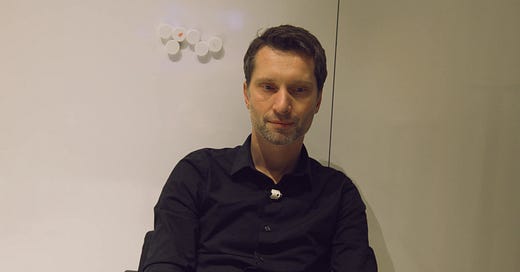The Stanford Business School professor Michal Kosinski has spent his career warning about the corrosive impact of technology, and particularly social media, on democratic institutions and individual freedom. The Polish born academic gained notoriety for his research at Cambridge University on how social media data could predict intimate personal traits. His work became particularly relevant during the Cambridge Analytica scandal in 2016, leading to significant legal consequences for Facebook, including a $50 billion fine. In this KEEN ON conversation with Kosinski, recorded in Munich at DLD, he emphasizes that Facebook wasn't inherently malicious but failed to understand the full implications of their intrusive technology. Kosinksi connects social media's rise with the growth of populism, explaining how platforms enabled figures like Trump and even Bernie Sanders to bypass traditional political gatekeepers. Kosinski also discusses his controversial 2017 research showing that AI can predict personal characteristics, including sexual orientation, from facial features. On privacy, Kosinski believes that complete privacy protection may be impossible in the modern digital age. Instead, he advocates for building social and legal systems that make privacy invasions less dangerous. Looking to the future, Kosinski expresses short-term optimism about AI's potential to improve lives but long-term concern about the risks of artificial general intelligence (AGI). He notes that while we may see increased prosperity and advancement in the near future, the exponential acceleration of technological progress means long-term risks could materialize much sooner than expected.
Michal Kosinski is an Associate Professor of Organizational Behavior at Stanford Graduate School of Business. His research interests encompass both human and artificial cognition. His current work centers on examining the psychological processes in Large Language Models and leveraging Artificial Intelligence, Machine Learning, Big Data, and computational techniques to model and predict human behavior. He co-authored Handbook of Social Psychology and Modern Psychometrics, two popular textbooks, and has published over 100 peer-reviewed papers in prominent journals such as Proceedings of the National Academy of Sciences, Nature Computational Science, Psychological Science, Journal of Personality and Social Psychology, Machine Learning, and Scientific Reports, which have been cited over 22,000 times. He is among the Top 1% of the Highly Cited Researchers according to Clarivate. His research has inspired a cover of The Economist, a 2014 theatre production titled “Privacy,” several TED talks, and a video game. It has been featured in thousands of press articles, books, podcasts, and documentaries. He received a Rising Star award from the Association of Psychological Science (2015) and an Early Achievement Award from the European Association of Personality Psychology (2023). He was behind the first press article warning against Cambridge Analytica. His research exposed the privacy risks they exploited and assessed the effectiveness of their methods. More about his role in uncovering their actions can be found in Steven Levy’s insightful book Facebook: The Inside Story and Sander van der Linden’s article, “Weapons of Mass Persuasion.” He earned a PhD in psychology from the University of Cambridge and two master’s degrees in psychometrics and social psychology. Before his current appointment, he held positions as a post-doctoral scholar in Stanford’s Computer Science Department, Deputy Director of the University of Cambridge Psychometrics Centre, and a researcher in Microsoft Research’s Machine Learning Group.
Named as one of the "100 most connected men" by GQ magazine, Andrew Keen is amongst the world's best known broadcasters and commentators. In addition to presenting KEEN ON, he is the host of the long-running How To Fix Democracy show. He is also the author of four prescient books about digital technology: CULT OF THE AMATEUR, DIGITAL VERTIGO, THE INTERNET IS NOT THE ANSWER and HOW TO FIX THE FUTURE. Andrew lives in San Francisco, is married to Cassandra Knight, Google's VP of Litigation & Discovery, and has two grown children.













Share this post